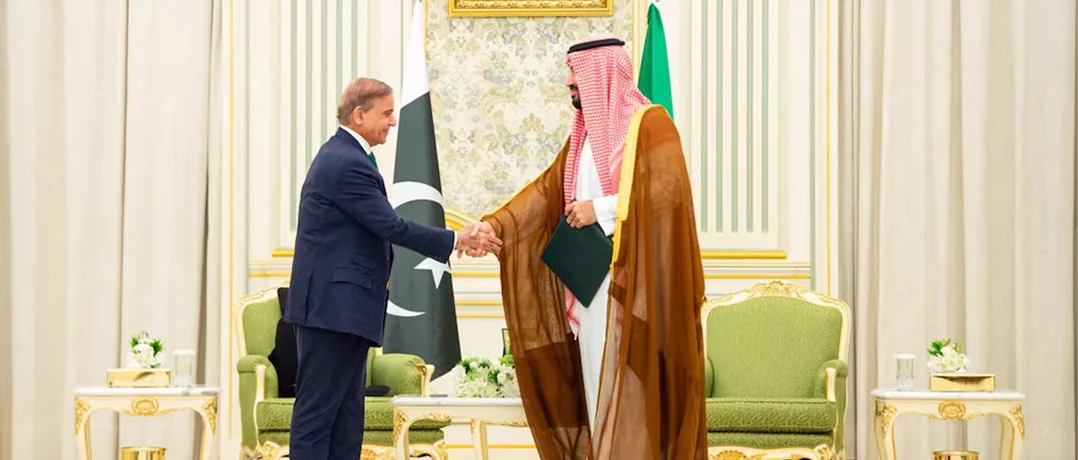Saudi Arabia and Pakistan signed a mutual defense pact, pledging joint protection amid rising regional tensions.
Saudi Arabia and Pakistan sign mutual defense pact
Saudi Arabia and Pakistan sign mutual defense pact


Saudi Arabia and Pakistan signed a sweeping mutual defense pact on Wednesday, formalizing a decades-long security partnership at a moment of heightened tension across the Middle East and South Asia.
The agreement, inked in Riyadh by Saudi Crown Prince Mohammed bin Salman and Pakistani Prime Minister Shehbaz Sharif, commits both nations to treat an attack on one as an attack on the other a significant expansion of their long-standing military ties.
Regional Context and Timing
The timing of the pact underscores the volatility of the region. Israel’s recent strike on Doha—its second on Qatari soil in less than a year sent shockwaves through Gulf capitals. This latest strike targeted Hamas leaders while they were reviewing a ceasefire proposal to end the Gaza war. Many Arab states viewed it as not only undermining mediation efforts but also exposing Qatar to direct military risks, heightening concerns among Gulf neighbors about their own vulnerability.
For Riyadh, the pact also reflects a recalibration of security strategy. While Saudi Arabia has cautiously pursued normalization with Israel and maintained a delicate détente with Iran, the defense pact with Pakistan signals an intent to construct parallel security arrangements outside the U.S. umbrella. Gulf leaders’ doubts about Washington’s reliability have been mounting for years, and the U.S. response to the Qatar strike—condemnation without deterrent action—fueled perceptions that American guarantees may no longer be ironclad.
Implications for South Asia
The deal comes just months after Pakistan, a nuclear-armed state, engaged in a brief military clash with India, itself a nuclear power, in May. The Saudi leadership is aware of the sensitivities: strengthening military ties with Islamabad risks unsettling Riyadh’s growing economic and diplomatic partnership with New Delhi. “Our relationship with India is more robust than it has ever been,” a senior Saudi official told The Beiruter. “We will continue to grow this relationship and seek to contribute to regional peace whichever way we can.”
When asked whether the deal effectively places Pakistan’s nuclear deterrent at Saudi Arabia’s disposal, the official was categorical: “This is a comprehensive defensive agreement that encompasses all military means.”
The Pakistani prime minister’s office described the agreement as reflecting the “shared commitment of both nations to enhance their security and to achieve peace in the region and the world.” It added that the pact aims to “develop aspects of defense cooperation between the two countries and strengthen joint deterrence against any aggression.”


